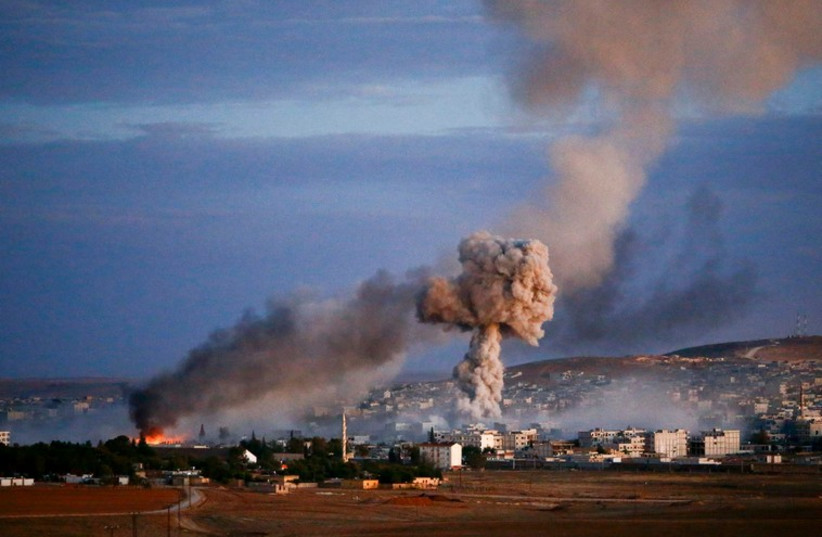Biden Tells Israel to Stop Attacking Iran
Israel Today
November 22, 2021

Biden Administration officials have cautioned Israel that its repeated attacks on Iran’s nuclear program are “counterproductive,” reported The New York Times.
While blowing up centrifuges and taking facilities temporarily offline might be “tactically satisfying,” the report cited the US officials as saying that for Israel to do so is “ultimately counterproductive.”
The Americans stressed that in nearly every case of suspected Israeli interference, the Iranians quickly recovered and came back stronger and even closer to their goal of attaining a nuclear weapon.
The report stated that Israeli officials rejected Washington’s warning and stressed that the Jewish state has no intention of backing off.
Prime Minister Naftali Bennett and Defense Minister Benny Gantz attended a IDF exercise in northern Israel last week that simulated an attack by Iran and its proxies.
Bennett told reporters, perhaps in direct response to the American position: “No matter what happens between Iran and the world powers, we are concerned that there is not enough toughness in the face of Iranian violations. Israel will defend itself on its own.”
Gantz added: “The world must act against Iran, and Israel must continue to do what it needs to do.”
Iran is scheduled resume negotiations with world powers in Vienna next week. The negotiations are aimed at renewing the previous Iran nuclear deal that Israel’s previous government vehemently opposed.
In an op-ed for The Times of Israel, former ambassador Michael Oren explained the subtle, yet critical difference in the US and Israeli positions regarding the process with Iran.
“While the United States can live with an Iran that has the ability to make a bomb but doesn’t do so, Israel simply cannot,” wrote Oren.
In other words, the US is committed to preventing Iran from attaining a nuclear weapon, but not to stopping it from becoming a nuclear threshold state. There are a number of nuclear threshold states in the world, and Washington seems to believe that like them, Iran could ultimately be persuaded against going nuclear, even if it has the capability to do so.
But “threshold” in this sense means that a country has the ability to produce and field a nuclear weapon within weeks, or even days, if it ever chooses to go down that path. That would leave far too little time for the international community to do anything about it.
Israel cannot live with that risk.
![Two US-made Israeli F-35 “Adirs” fly in formation, and display the US and Israeli flags, en route to Israel for their delivery on December 6, 2016 [U.S. Air Force/Wikipedia]](https://i2.wp.com/www.middleeastmonitor.com/wp-content/uploads/2018/02/2016_12-6-Israel-Air-ForceIsraeli_F-35_Adir_delivery_flight_1.jpg?resize=1200%2C800&quality=85&strip=all&zoom=1&ssl=1)
Even without ever producing “the bomb,” an Iran that reaches threshold status would alter the balance of power in the Middle East by providing a viable, if potential nuclear deterrent for itself and all its proxies. Taking action against Iranian aggression would suddenly become a far more perilous endeavor.
Lastly, for Iran to reach threshold status would prompt a number of rival Sunni Arab states to do the same, sparking a nuclear arms race in one of the most unstable regions in the world.
2 comments:
I am inclined to agree with the author on this one. Unfortunately I don't think the current administration in the US gives a rat's ass about the continued existence of the Jewish state of Israel. Mutually Assured Destruction is all they have protecting them. This only works when one is dealing with sane actors. I am unsure that is the case in the Middle East.
Living alongside a nation whose people openly admit they want to destroy you.
What could possibly go wrong?
Post a Comment